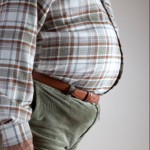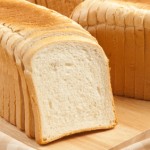I basically knew what happens when we ingest glucose, (eating it or drinking it depending on whether it's in solid or liquid form, e.g frosting versus sweetened tea) : it goes through the liver and heads off to muscle and other body parts where insulin activity is responsible for energy use. But I wanted to compare its effects to those of fructose. First I found an old article (1986 vintage) in the American Journal of Physiology (AJP), hardly a bedside reading item for me these days, but one I used to proofread for as a research fellow. That, once I translated it into English that I could understand, changed my mind a bit.
Glucose does lead to an increase in insulin levels and an increase in carbohydrate breakdown, while lipid (fat) breakdown slows down. The net result is a considerable bump in energy use. 'So far, so good,' I thought. But a comparable amount of fructose resulted in a much smaller increase of insulin, yet considerably more carb breakdown and even less fat breakdown. So even more energy was used. That I hadn't expected, but this study was a one-time experiment with seventeen healthy folk followed for a few hours.
So my next question, and I thought this one was far more important, was what happen longterm?
Let's look at animal research first. A group from Princeton published an article online in a journal called Pharmacology, Biochemistry and Behavior in February 2010. Tha basic conclusion from these scientists contradicted what I had read elsewhere, but made sense. They concluded all sweetener calories are not equal-- after feeding rats standard foods and adding either table sugar-sweetened water or HFCS-sweetened water. Even if the HFCS water was less sweet overall, the rats gained more weight. Long-term feeding experiments showed rats fed HFCS developed many of the signs of the "metabolic syndrome." weight gain, fat deposition in the belly and abnormal blood levels of trigclycerides.
So fructose was being metabolized to form fat, while glucose was being used as it normally is. That brought their thoughts back to why fructose in HFCS is different from that in table sugar. According to this research group, HFCS contains free, unbound fructose while that found in table sugar is always tied to a glucose molecule. Their concept is that table sugar fructose has to go through an additional chemical process, freeing it from glucose, before it can be used by the body.
So why should we care what makes rats fatter?
I found a long article in The Journal of Clinical Investigation (JCI), the other research magazine my boss (and I) reviewed potential articles for in 1970 to 1972. Here people who who overweight or obese to begin with were fed either glucose- or fructose-containing liquids for ten weeks.
And the results were similar. Those getting fructose had more belly fat develop. I think translates to more chance of heart disease and other long term complications.
The evidence is gradually adding up; I think HFCS is something to be avoided. Let's feed our kids and ourselves more fruits and vegetables and less processed foods.





